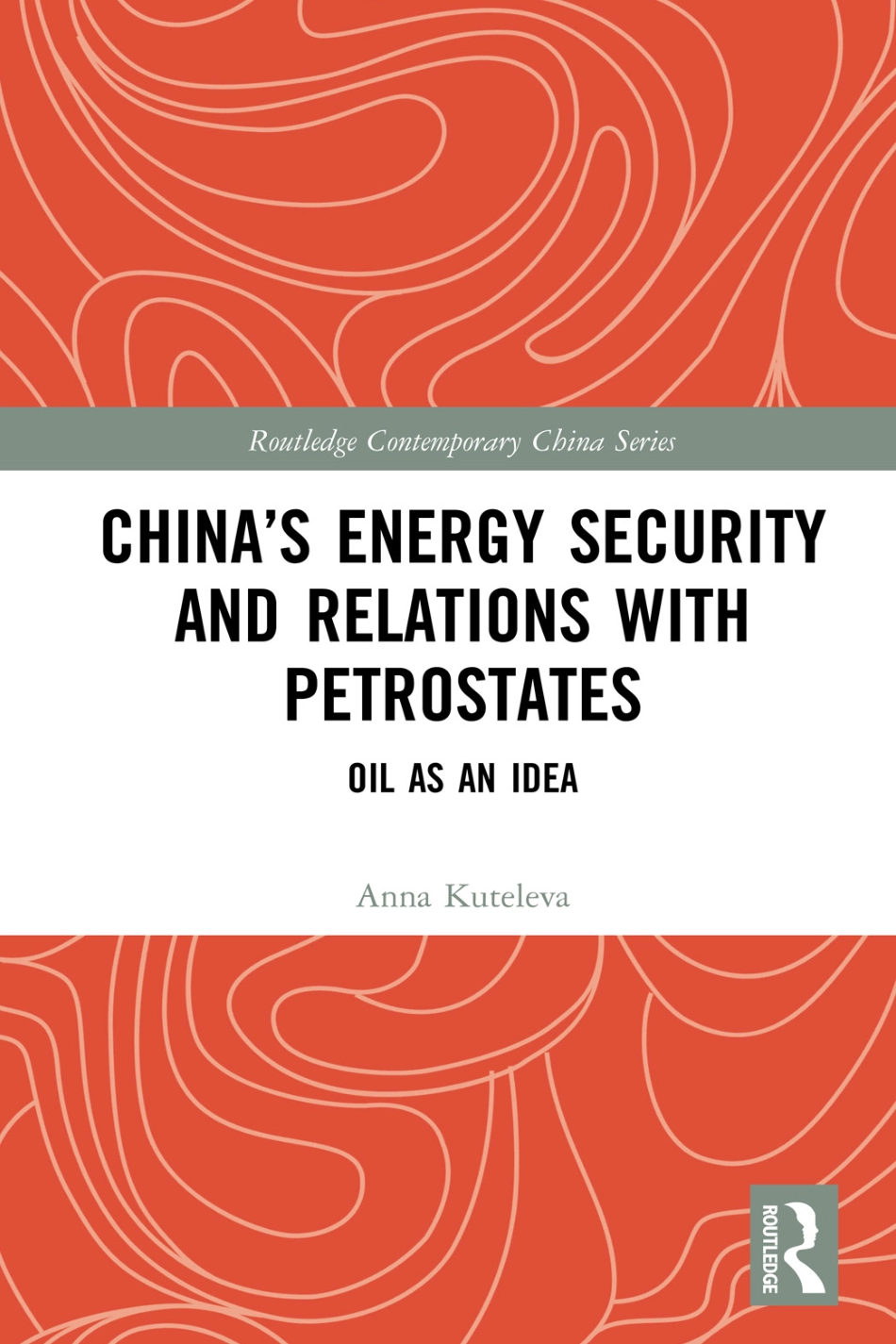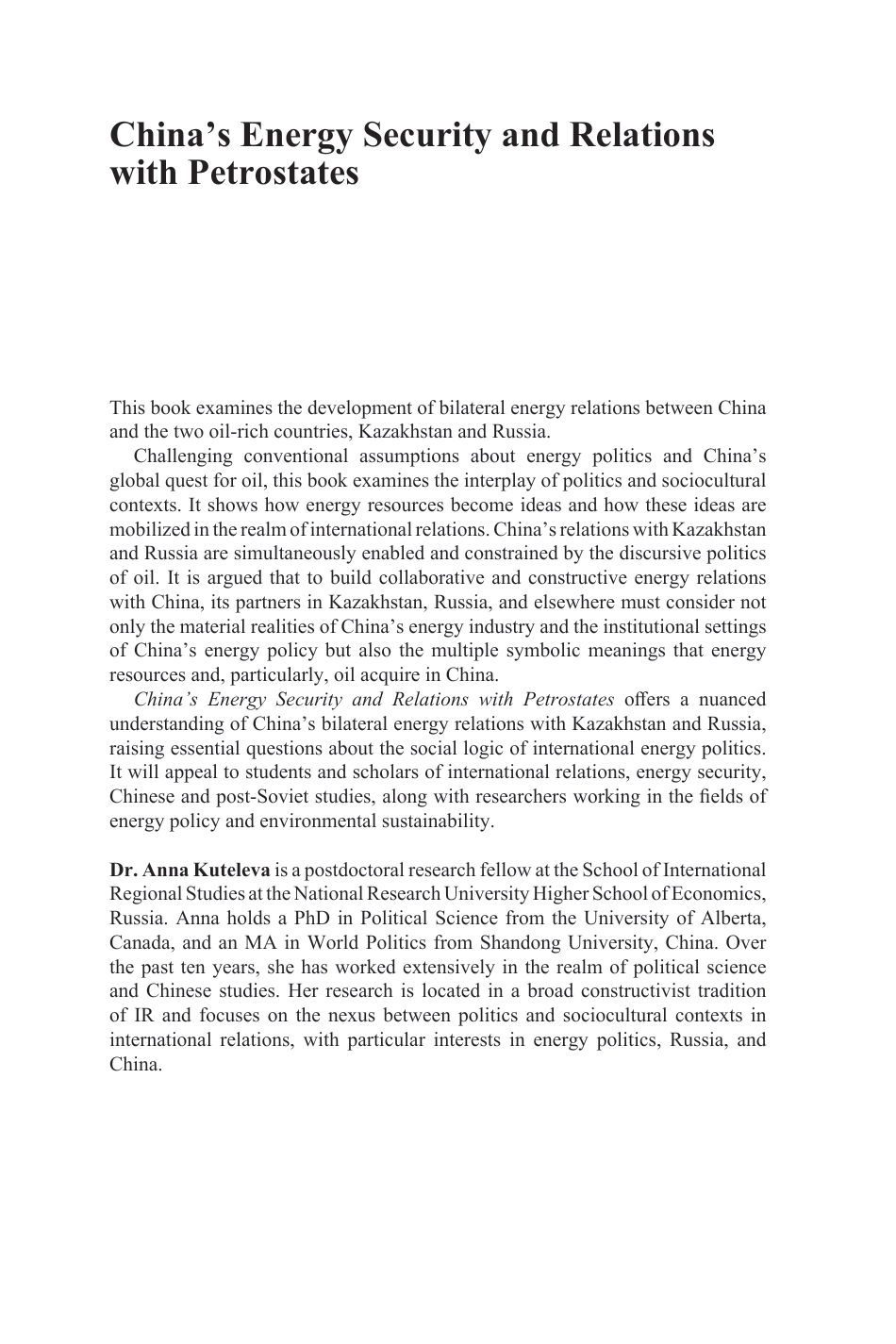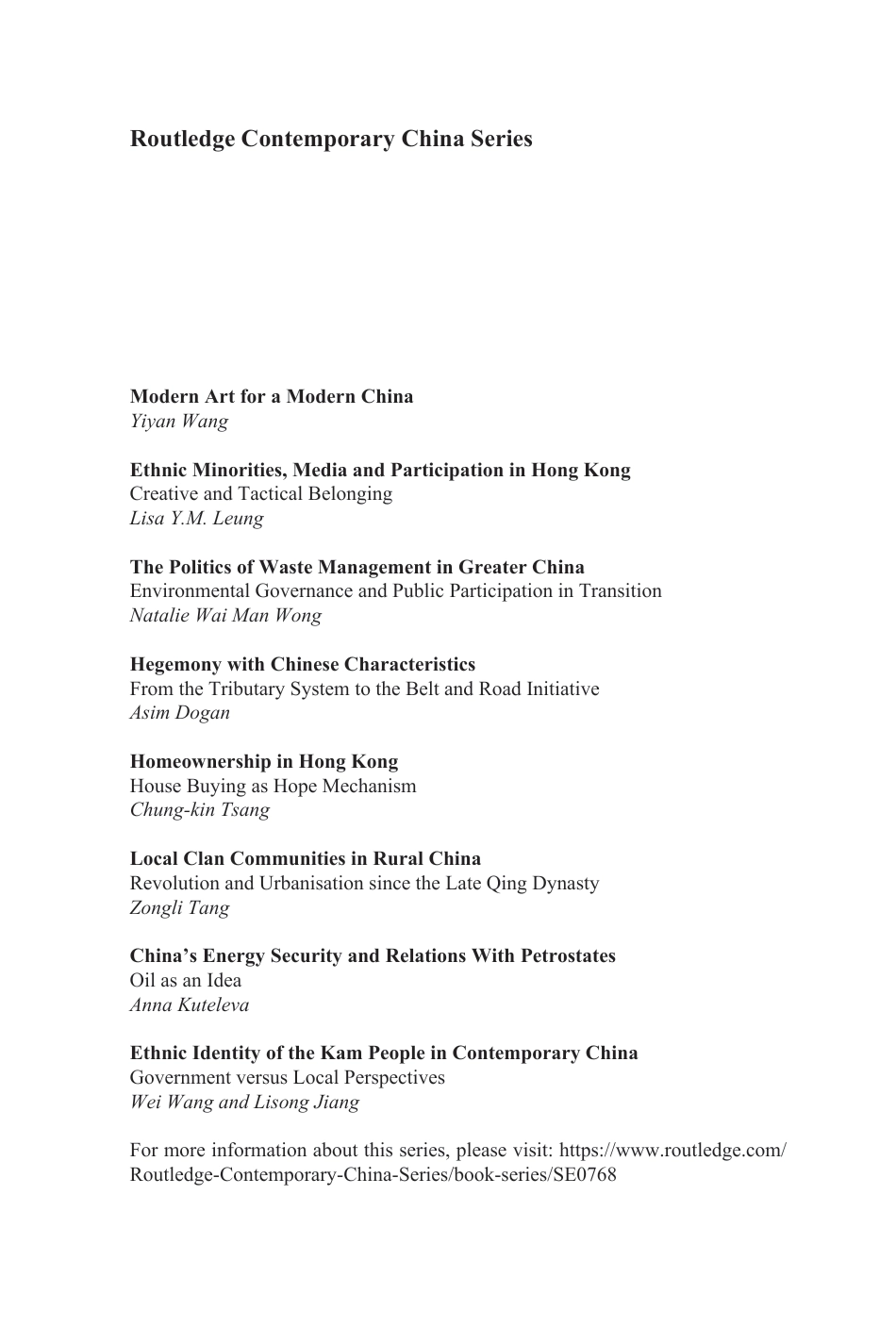China’s Energy Security and Relationswith Petrostates This book examines the development of bilateral energy relations between China and the two oil-rich countries, Kazakhstan and Russia. Challenging conventional assumptions about energy politics and China’s global quest for oil, this book examines the interplay of politics and sociocultural contexts. It shows how energy resources become ideas and how these ideas are mobilized in the realm of international relations. China’s relations with Kazakhstan and Russia are simultaneously enabled and constrained by the discursive politics of oil. It is argued that to build collaborative and constructive energy relations with China, its partners in Kazakhstan, Russia, and elsewhere must consider not only the material realities of China’s energy industry and the institutional settings of China’s energy policy but also the multiple symbolic meanings that energy resources and, particularly, oil acquire in China. China’s Energy Security and Relations with Petrostates offers a nuanced understanding of China’s bilateral energy relations with Kazakhstan and Russia, raising essential questions about the social logic of international energy politics. It will appeal to students and scholars of international relations, energy security, Chinese and post-Soviet studies, along with researchers working in the fields of energy policy and environmental sustainability. Dr. Anna Kuteleva is a postdoctoral research fellow at the School of International Regional Studies at the National Research University Higher School of Economics, Russia. Anna holds a PhD in Political Science from the University of Alberta, Canada, and an MA in World Politics from Shandong University, China. Over the past te...



